I’m blasted back to the 1990s when Ian Dyga slides across a photo album on a visit to his shop.
There I am, young and full of optimism about the world, playing and swapping Pokémon cards with dozens of other children – some I no longer remember.
He hands me another album. This time, we’re in the 2000s, and the talk of the playground and Ian’s weekly gaming club in Fraserburgh is Stone Cold Steve Austin and Dragon Ball Z. I’m slightly older, and the optimism is starting to waver.
For more than 30 years, Ian has been offering people a space to play card and board games in the north-east, and has been a fixture both in my own life and the town itself. But with businesses across the country feeling the squeeze, inevitably, he has been forced to make changes.
Formerly a newsagent by day, Ian has run his family’s shop, R & S Dyga, which has been in operation for 65 years on Broad Street, all his adult life. Following Covid, however, sales of magazines and physical editions of the tabloids he relied upon to make ends meet plummeted.
Today, the only reading material to be had in the shop comes from a well-curated selection of local authors who he regularly hosts, and the rule books for the more than 400 board games that line the walls. The shop has always stocked a selection of games, but never on this scale.
Many a schoolchild, I’m sure, can attest that they went hungry on more than one lunch break after blowing their dinner money on the latest pack of Pokémon cards Ian would have front and centre, in the hope of pulling a shiny. The only difference now is that it’s Ian who is hoping to find something rare in his games.
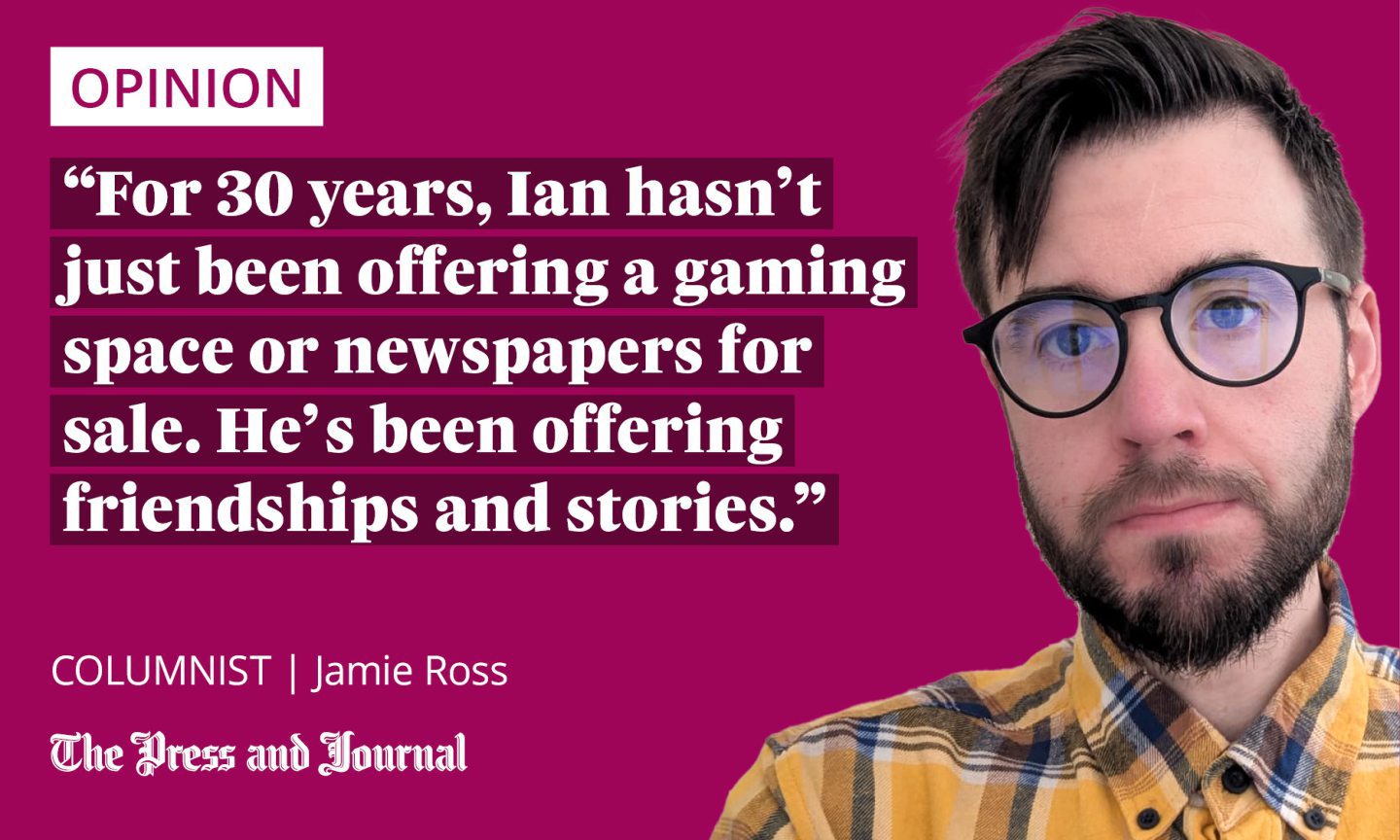
Our conversation turns to how every business in the town has been affected by the pandemic, and how they’ve all had to make changes to stay open. Ian, at least, seems to have a loyal contingent of customers who eagerly show up every week to his gaming sessions. Pokémon, he says, is still even being played on the tables I likely used many, many moons ago.
He’s been hosting these gaming sessions for as long as I can remember, and it was where I first met him in 1999, when he was renting a public hall to bring the town’s gamers together. Like everything else in Fraserburgh seems to, though, that, too, has been forced to change.
These days, Ian opens up the shop and its facilities as a space for people to play in six days a week. Gone are the shelves that were once filled with magazines and newspapers. In their place is enough games and gaming paraphernalia to outfit a small, bored army.
Every shop, he tells me, is doing what it can to survive.
Once regarded as institutions or cornerstones of a local community, locally-owned businesses are doing everything from offering new services or products to simply calling it quits on bricks and mortar and moving online in attempts to stave off closure.
A space for friendships and stories
Ian admits his own pivot is a drastic one, but he’s hopeful it will work out.
On a good weekend, while people roll dice and map out battles in the Warhammer universe on his tables, he can make more than he did in a whole week of magazine sales.
Candidly, he tells me he thought he would always be a newsagent. Now, it seems, he’s living what many people would consider a dream by turning their hobby into a career.
As we say our goodbyes and I make to leave, he hands me one last photo. In it, I’m sitting next to one of my oldest friends, Andrew, who I met at age 12. I’ll be seeing him this weekend – at Ian’s shop for our own monthly gaming session.
Looking at that photo, I begin to buy in to Ian’s vision. He’s right to have faith in his plan.
For more than 30 years, Ian hasn’t just been offering a gaming space or newspapers for sale. He’s been offering friendships and stories. Without him, and his shop, people like me – and perhaps you – might never get to experience that again.
And while I might not be able to buy a magazine at R & S Dyga’s anymore, some things haven’t changed. Ian is still there, and that’s why I’m optimistic again.
Jamie Ross is group picture editor for The Press and Journal, a former north-east reporter and a Brocher
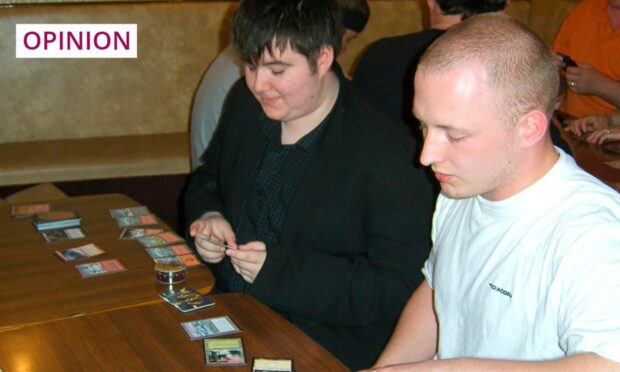
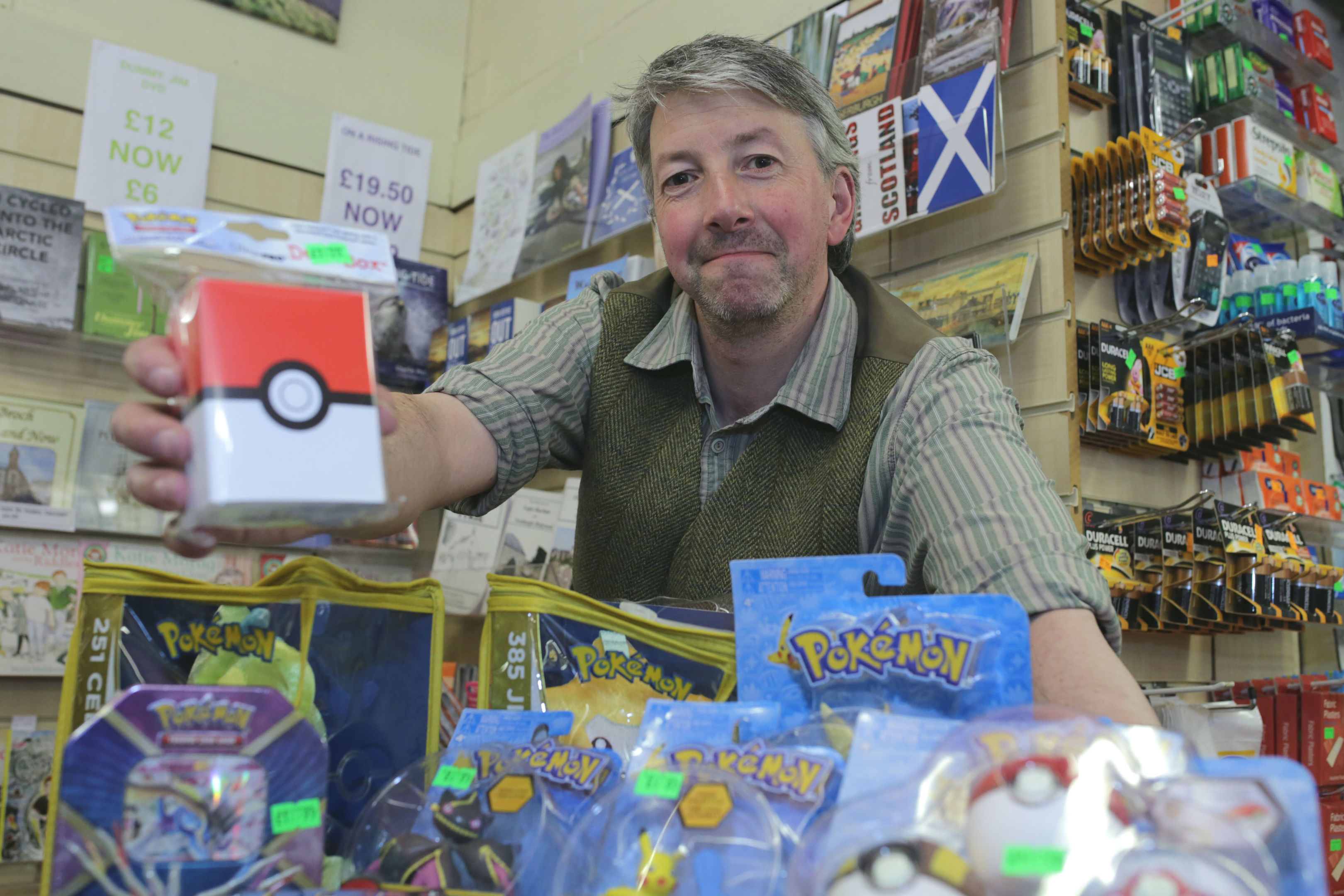
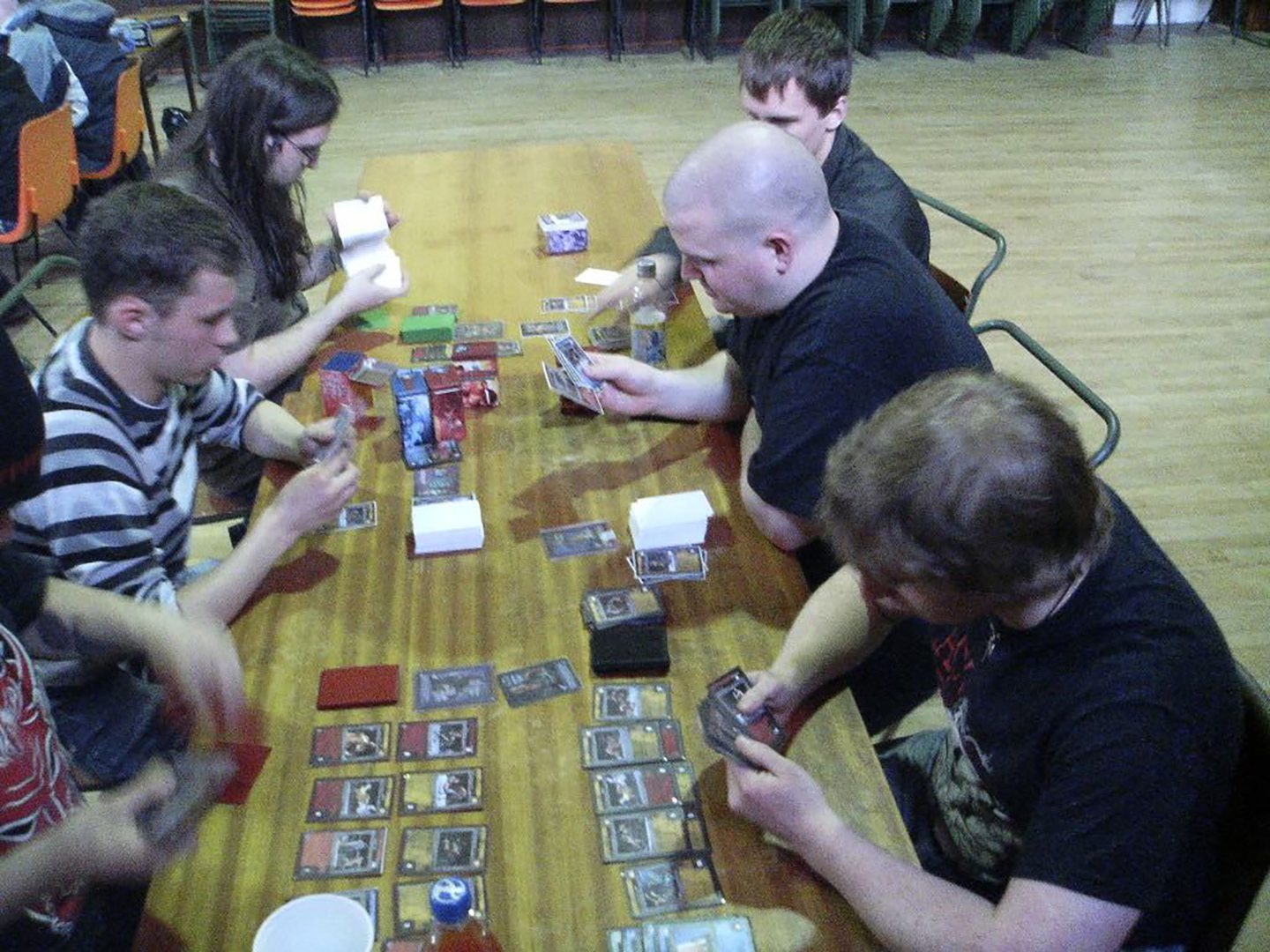
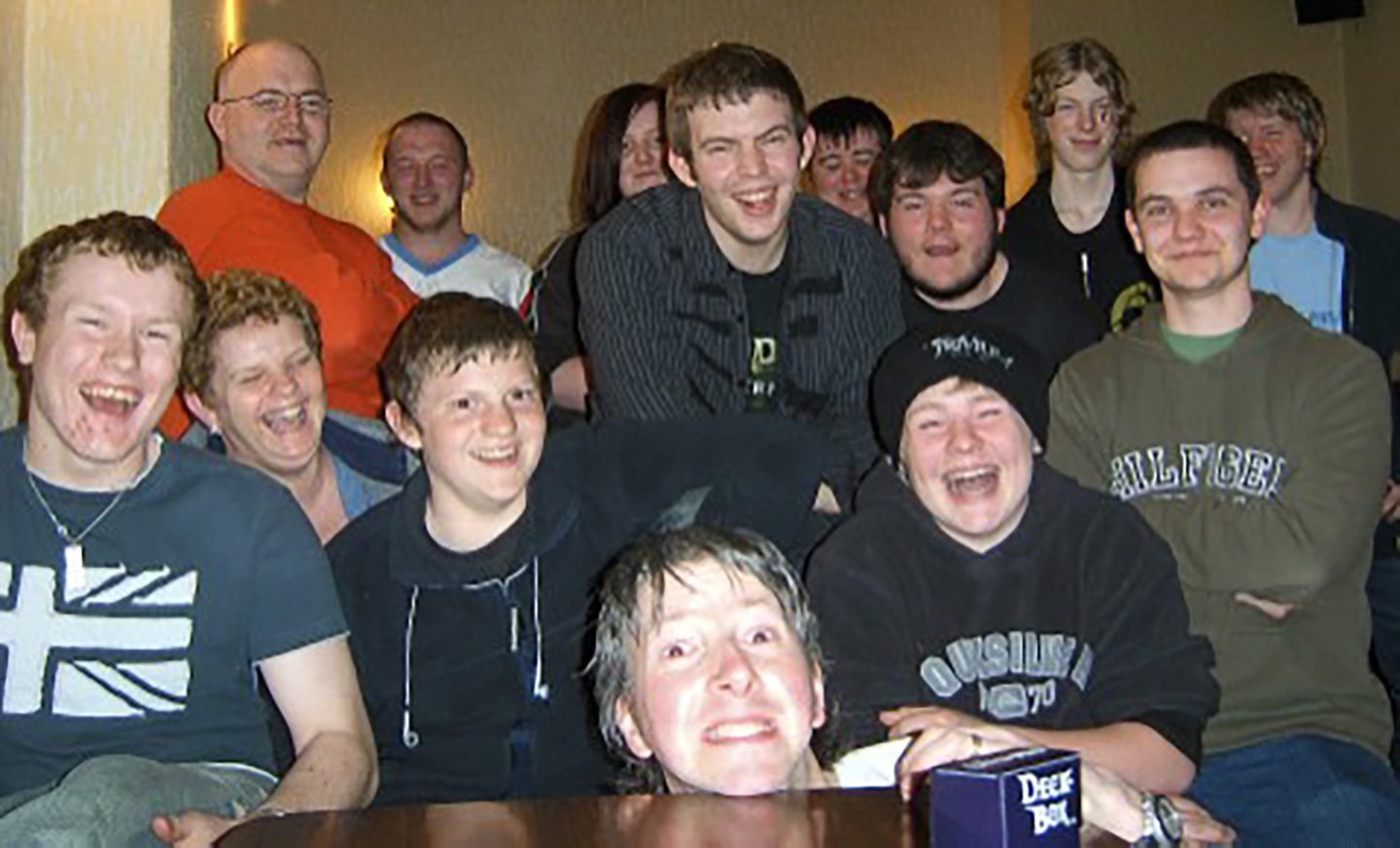
Conversation